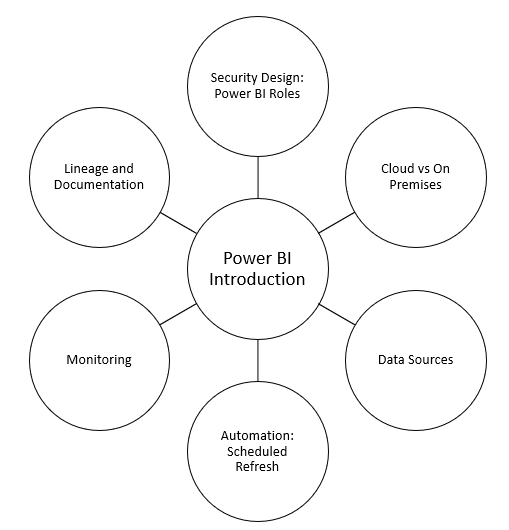More and more people are using Power BI in their everyday roles. Understanding the different deployment types and basics of the product helps with the adoption of self service data and digital migration. Not every organization has the appetite or capability to use Power BI in the cloud. The cloud and on premises capabilities do have some differences but it is a great place to engage with dashboards and paginated reports. The presentations I have given covered these areas.
Chaos, complexity, curiosity and database systems. A place where research meets industry
Welcome
Passionately curious about Data, Databases and Systems Complexity. Data is ubiquitous, the database universe is dichotomous (structured and unstructured), expanding and complex. Find my Database Research at SQLToolkit.co.uk . Microsoft Data Platform MVP
"The important thing is not to stop questioning. Curiosity has its own reason for existing" Einstein
"The important thing is not to stop questioning. Curiosity has its own reason for existing" Einstein
Friday, 19 June 2020
Tuesday, 9 June 2020
STEM Role Models - 1 Million Women In STEM
This is women in STEM. They are celebrating 1000 real role models that are kicking ass,smashing stereotypes & breaking barriers. This is an amazing chance to help share women STEM role models for the future generations. Read more and join us http://1mwis.com
#womenintech #womeninmaths #WomenInScience #womeninengineering #AcademicTwitter #WomenWhoCode
Wednesday, 3 June 2020
Planning a PowerBI Enterprise Deployment
There is an updated version of the Planning a Power BI Enterprise Deployment whitepaper. Deploying Power BI in a large enterprise is a complex task that requires a lot of thought and planning.
The paper includes these areas for consideration.
Section 1: Introduction Section 2: Power BI Usage Scenarios Section 3: Power BI Architectural Choices Section 4: Power BI Licensing and User Management Section 5: Power BI Source Data Considerations Section 6: Power BI Dataset Storage Options Section 7: Power BI Data Refresh and Data Gateway Section 8: Power BI Dataset and Report Development Considerations Section 9: Power BI Collaboration, Sharing and Distribution Section 10: Power BI Administration Section 11: Power BI Security and Data Protection Section 12: Power BI Deprecated Items Section 13: Support, Learning, and Third-Party Tools
There is a summary of some of the changes at https://coatesdatastrategies.com/blog/updated-whitepaper-planning-a-power-bi-enterprise-deployment
The paper includes these areas for consideration.
Section 1: Introduction Section 2: Power BI Usage Scenarios Section 3: Power BI Architectural Choices Section 4: Power BI Licensing and User Management Section 5: Power BI Source Data Considerations Section 6: Power BI Dataset Storage Options Section 7: Power BI Data Refresh and Data Gateway Section 8: Power BI Dataset and Report Development Considerations Section 9: Power BI Collaboration, Sharing and Distribution Section 10: Power BI Administration Section 11: Power BI Security and Data Protection Section 12: Power BI Deprecated Items Section 13: Support, Learning, and Third-Party Tools
There is a summary of some of the changes at https://coatesdatastrategies.com/blog/updated-whitepaper-planning-a-power-bi-enterprise-deployment
Tuesday, 2 June 2020
Data Maturity Assessment
The Data Maturity
Assessment is the first part of my Data
Quality Framework . It is important to know where you are in the process of
data maturity before you can seek to improve the situation.
DAMA sets out the maturity model in various stages. These being
- Initial /Adhoc
- Repeatable
- Defined
- Managed
- Optimized
There are various tools out there which can help you carry out an assessment. These tools have similar model definitions. One such tool is the hesa tool.
Monday, 1 June 2020
Ethical Data Handling Strategy
As a part of the Ethical Data Handling Strategy in my Data
Quality Framework there are various things to consider. A good place to start
is with The Data Ethics
Canvas which can help you identify and manage ethical data issues.
ODI have produced a clear definition of what data ethics is
“Data ethics is a branch of ethics that evaluates data practices
with the potential to adversely impact on people and society – in data
collection, sharing and use” The Open Data Institute, 2018.
Data Ethics is important to consider and embed in your data system now. With the use of data in AI expanding it is important to obtain create an Ethical Data Handling Strategy.
Subscribe to:
Comments (Atom)





